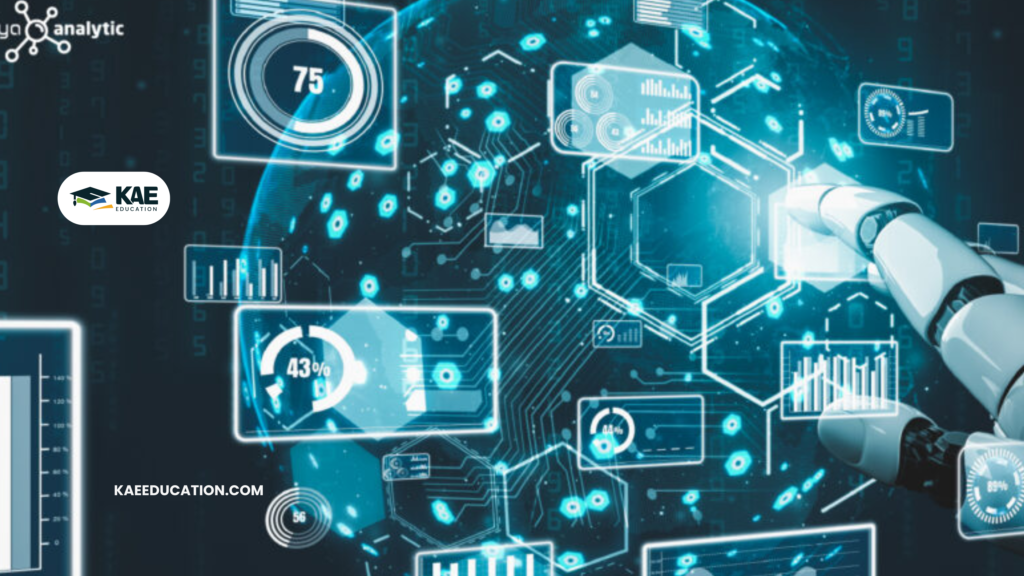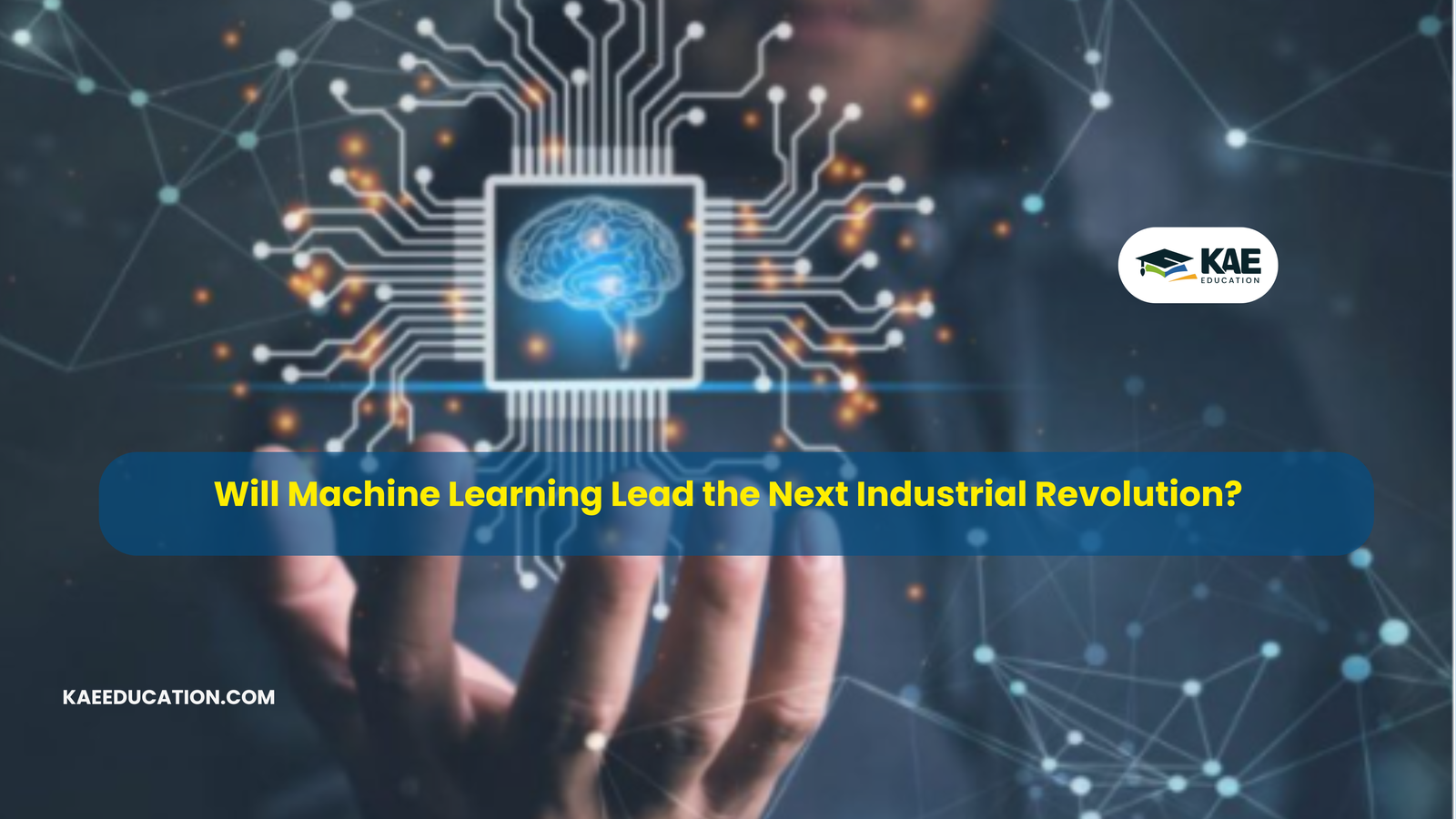Will Machine Learning Lead the Next Industrial Revolution?
The world is on the brink of a transformative era, often referred to as the Fourth Industrial Revolution. This revolution is defined by automation, advanced computing, and data-driven decision-making, all of which are heavily powered by Machine learning. As Industries adapt to new challenges and opportunities, Machine learning is emerging as a catalyst for innovation, efficiency, and growth.
What is Machine Learning’s Role in the Industrial Revolution?
Machine learning (ML) is a subset of Artificial intelligence (AI) that enables systems to learn from data, identify patterns, and make decisions autonomously. It transforms the way Industries operate by offering smarter automation, real-time insights, and predictive capabilities.
Key ways ML is driving the Industrial revolution:
(I) Automation of Routine Tasks: Reduces human intervention and improves efficiency.
(ii) Predictive maintenance : anticipates maintenance requirements to avoid equipment breakdowns.
(iii) Optimization of Resources: Ensures optimal use of energy, raw materials, and workforce.
(iv) Enhanced Decision-Making: Provides actionable insights to guide strategic choices.
Applications of ML in the Industrial Revolution
(1) Manufacturing
(i) Smart factories powered by ML optimize production lines and reduce waste.
(ii) Predictive analytics ensures uninterrupted operations by identifying potential breakdowns.
(2) Healthcare
(i) Accelerates drug discovery with advanced algorithms analyzing vast datasets.
(ii) Personalizes patient care through predictive health monitoring.
(3) Supply Chain and Logistics
(i) ML improves inventory management and delivery routes.
(ii) Forecasting demand helps Businesses prepare for market fluctuations.
(4) Energy Sector
(i) AI-driven grids predict energy demand and ensure efficient distribution.
(ii) Renewable energy systems are optimized with ML-based analytics.
(5) Finance
ML algorithms detect fraud, automate Financial planning, and provide real-time risk assessments.

How ML Will Shape 2024-2025
The next few years will witness exponential growth in the application of Machine learning across Industries:
(i) Integration with IoT: Smart sensors will provide richer data for ML algorithms to analyze and act upon.
(ii) Enhanced Cybersecurity: ML will identify and mitigate threats in real time.
(iii) Human-Machine Collaboration: Cobots (collaborative robots) powered by ML will work alongside humans in Industries.
(iv) Sustainability Focus: ML will optimize resource usage and reduce environmental impact.
Benefits of Machine Learning in the Industrial Revolution
(i) Increased Productivity: Automates repetitive tasks, allowing workers to focus on strategic activities.
(ii) Cost Savings: Optimizes resource allocation and reduces operational inefficiencies.
(iii) Improved Safety: ML-powered systems monitor and prevent hazards in real time.
(iv) Scalable Solutions: Adapts to the growing demands of Industries, ensuring continuous improvement.
Challenges in Machine Learning Adoption
(1) Data Dependency
(i) ML systems require vast amounts of high-quality data.
(ii) Solution: Invest in robust data collection and preprocessing infrastructure.
(2) Ethical Concerns
(i) Automation may displace jobs, raising ethical and societal questions.
(ii) Solution: Focus on reskilling workers and fostering human-Machine collaboration.
(3) Cybersecurity Risks
(i) ML systems can be vulnerable to cyberattacks.
(ii) Solution: Implement advanced security protocols and monitoring tools.
Conclusion: The Future Belongs to Machine Learning
As the Fourth Industrial Revolution accelerates, Machine learning is poised to lead the charge. By enabling smarter automation, predictive capabilities, and real-time insights, ML is revolutionizing Industries and redefining productivity.
Looking ahead to 2024 and beyond, the integration of Machine learning with emerging technologies like IoT, robotics, and quantum computing will unlock unprecedented opportunities for innovation. Businesses that embrace Machine learning today are not just future-proofing themselves but are actively shaping the industrial landscape of tomorrow.
The question is no longer if Machine learning will lead the next Industrial revolution—it’s how far its impact will reach.
FAQs About Machine Learning and the Industrial Revolution
ML automates processes, provides predictive insights, and enhances efficiency across sectors like Manufacturing, Healthcare, and Finance.
It enables smarter automation, real-time decision-making, and resource optimization, driving Industrial innovation.
Predictive maintenance, supply chain optimization, fraud detection, and personalized Healthcare are some key applications.
Data dependency, ethical concerns, and cybersecurity risks are major hurdles.
While some jobs may be automated, ML will create new roles requiring advanced skills and foster human-machine collaboration.
Manufacturing, Healthcare, Finance, logistics, and energy sectors are set to gain the most.
ML will continue to evolve, driving innovation, sustainability, and economic growth, especially in automation and decision-making.

